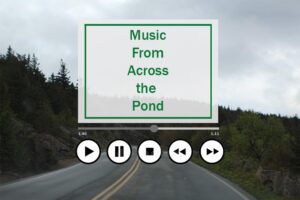Lifeguarding will forever be the best job I have ever had. For three summers, I spent entire work days on the beach getting paid to save lives, yell at children, tan and most importantly, surf. One of my favorite year-round recreational activities, lifeguarding is what first introduced me to surfing as a necessary part of lifeguard culture. Most days before and after work, my boss would encourage me to stay fit for the job by messing around in the waves with a board, turning a casual workout routine to an obsession with the world of surfing.
Until I studied abroad in the spring of 2020, I always had the freedom to escape to the Maine coast and lose myself in the waves. However, the unlimited access I had changed when I arrived in northern Italy, as this boot-shaped Mediterranean peninsula is sadly not known for world-class swell. Nevertheless, I was determined to surf a wave in Europe somewhere, even if it was not an Italian wave.
While Italy is not a surfing country, it still holds incredible opportunities for outdoor adventure. Here are some of the many recreational activities Italy is known for:
Skiing
With the Alps serving as its northern border, Italy is home to some of the best skiing in Europe. These mountains are enormous and almost unlike anything found in the United States. With hundreds of resorts and mountains to choose from on just the Italian side alone, the Alps is a skier’s paradise. Two of my friends went to Breuil-Cervinia, which resides in the shadow of the most recognizable peak in the Alps, The Matterhorn. They said the experience was amazing — they even got to ski right over the Italian-Swiss border. I only went skiing once while abroad at a small resort called Bardonecchia, just north of Torino. It gave me only a taste of what skiing in the Alps has to offer.
Soccer
If baseball is America’s pastime, then soccer is undoubtedly Italy’s. In fact, soccer is truly the world’s pastime outside of the U.S. Soccer (or “calcio” in Italian) and its culture permeates Italian life significantly. Italy is home to some of the largest and most successful soccer clubs in the world. Torino, the city I lived in, is home to the 36-time Italian champions Juventus. The fandom inspired by clubs like Juventus creates a passion for the game down to the smallest level. People play it on the streets, in schools, at parks and everywhere in between. It is not hard to put together a game — all you need is a ball and a few friends.
Canyoning
Now, this is an odd one. Think of canyoning as going down a natural waterslide, except that the slide is a jagged fissure. The water is straight from a glacier. There is sometimes more climbing than sliding involved, and helmets are an absolute necessity. Canyoning allows people to descend river systems in canyons via swimming, climbing and rappelling. Italy’s plethora of mountains in the north offer the perfect opportunity for this relatively new sport. My friends and I scrambled to book a guided trip last-minute near Lake Como, but sadly, our plans fell through. All for the best probably; the guide we found didn’t even have a website.
Hiking
The mountains in Italy are not only meant for skiing. The country has a wide range of hiking terrain for multiple skill levels between the Alps, the Apennines and the many rolling hills in the central and southern regions. Running north to south, the Apennines offer many casual to moderate hiking trails with scenic views of the Italian wilderness. Hiking trips in the Apennines are especially beautiful in the well-known region of Tuscany and are an absolute must-do for any hiking enthusiast.
From these highlights, hopefully one of these four recreational activities speaks to you on a personal level even if you’re not currently booking a one-way trip to pursue the outdoor recreation of your dreams. Obviously, Italy’s list of outdoor activities goes on for much longer, but skiing, soccer, canyoning and hiking are the most notable.
Unfortunately, surfing did not make this list. While there is a little surf culture to be found on Italy’s western coast, namely around the cities of Genoa and Rome, surfing is a limited sport in the country. To pursue my dream of finally surfing outside of the U.S., I had to travel by plane half an hour south into the Mediterranean Sea. On the island nation of Malta, I discovered a tiny, yet passionate surf community. Like surfing in Maine, Mediterranean waves are small and somewhat mushy; there are no 20 plus foot barreling waves to be found in this body of water.
I got into contact with a surf coach in Malta who was willing to let me rent a board and wetsuit for an afternoon. Originally from Italy, he told me that he grew up surfing beaches near Rome. A few years ago, he decided to pursue his passion in Malta, beginning the Malta Surf School to instruct tourists and locals on how to surf waves at Għajn Tuffieħa Bay.
After not having surfed since December in Maine, my afternoon at Għajn Tuffieħa was revitalizing. It only took several minutes to get my technique back. Surfing is sort of like riding a bike in that one never really forgets the fundamentals. The waves were a familiar size to those found in Maine and the water temperature was cool, yet comfortable.
Beyond the physical conditions, the surfing culture at this little Maltese bay was even similar to Maine. In fact, I would go so far as to say that surfing culture is, for the most part, the same everywhere around the world. Etiquette and rules do not change between countries, and the overall easy-going spirit associated with surfers is present across most cultures.
The only slight difference between surfing in Malta and Maine is the level of communal excitement and support. In Maine, surfers tend to ignore one another while out in the waves unless they are acquaintances, noting a competitive spirit in the air. In Malta, however, total strangers were whooping and whistling for me whenever I caught a wave. Maybe the cold water has made Maine surfers bitter and aloof, but one thing is for sure; we can definitely learn a thing or two from the Maltese when it comes to friendliness in the water. They do not get many chances to surf in the often quiet Mediterranean swell — perhaps this scarcity helps bring their niche community together.







